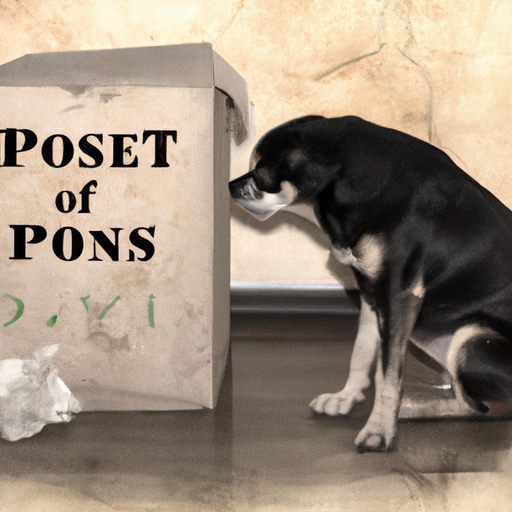Imagine a typical day at home, and suddenly, your dog seems disoriented, starts bleeding, or shows unexplained seizures. Your heart skips a beat, and your mind races through possibilities. You then notice an overturned box of rat poison. Could your dog have ingested it? In this comprehensive guide, we explore the repercussions of a dog ingesting rat poison and how immediate professional intervention can make all the difference.
Table of Contents
1. Impact of Rat Poison on Dogs
2. Symptoms of Rat Poison Ingestion
3. Immediate Actions to Take
4. Veterinary Treatment Options
5. Prevention of Rat Poison Ingestion
6. Frequently Asked Questions
Key Takeaways
* Rat poison ingestion is a life-threatening emergency for dogs, requiring immediate veterinary intervention.
* Symptoms include bleeding, seizures, weakness, and difficulty breathing.
* Induce vomiting only under professional guidance.
* Time is of the essence in these situations – the sooner the treatment, the better the prognosis.
* Prevention is always better than cure – store rat poison securely and consider safer pest control alternatives.
Impact of Rat Poison on Dogs
Rat poison, also known as rodenticide, is a toxin designed to eliminate rodents. However, its appealing taste often attracts dogs, leading to accidental ingestion. There are various types of rat poison, but most contain anticoagulants that inhibit blood clotting, causing internal bleeding. Some types affect the nervous system, leading to seizures and paralysis.
Rat poison ingestion is a life-threatening emergency for dogs. Even a small amount can cause significant harm, potentially leading to death if not promptly treated. Furthermore, the effects can last for a week or more, implying that delayed treatment could result in severe damage.
Symptoms of Rat Poison Ingestion
The symptoms of rat poison ingestion vary depending on the type of poison and the amount ingested. They may not appear immediately, sometimes taking 2-3 days to manifest. However, some common signs to watch out for include:
- Unexplained bleeding: This could be evident in the gums, nose, or even in the stool or urine. The dog may also cough up blood.
- Weakness and lethargy: The dog may seem unusually tired, unresponsive to calls or toys, and may lie down or sleep more than usual.
- Difficulty breathing: This may present as rapid breathing, panting, or difficulty catching breath.
- Neurological symptoms: These may include seizures, tremors, disorientation, or paralysis.
If you notice any of these signs and suspect your dog may have ingested rat poison, seek immediate veterinary help.
Immediate Actions to Take
If you suspect your dog has ingested rat poison, your actions can significantly influence the outcome. Here’s what you should do:
- Do not panic: Stay calm and act quickly. Your dog needs you to be composed to make the best decisions.
- Remove your dog from the source: Prevent further ingestion by moving your dog away from the poison.
- Collect a sample of the poison: This will help the vet identify the type of poison and determine the best course of action. If the packaging is available, bring it along.
- Induce vomiting only under professional guidance: Some online sources may advise you to induce vomiting, but this should only be done under the direction of a vet.
- Contact your vet immediately: This is a time-sensitive situation. The sooner the treatment begins, the better the prognosis.
Veterinary Treatment Options
Once you’ve reached the vet, they will assess the situation and decide the best course of treatment. This may involve inducing vomiting, providing activated charcoal to absorb the poison, or administering vitamin K1 for anticoagulant poisoning. In severe cases, your dog may require blood transfusions or oxygen therapy.
Remember, every minute counts, so quick action is crucial. For more on this, check out this article on emergency vet visits.
Prevention of Rat Poison Ingestion
Prevention is always better than cure. Here are some steps to prevent your dog from ingesting rat poison:
- Store rat poison securely: Keep it out of your dog’s reach, preferably in locked cabinets.
- Monitor your dog: Watch your dog while out on walks or in unfamiliar environments.
- Use safer alternatives: Consider using traps or pest control services that are safe for pets.
For more tips on pet safety, visit One Top Dog.
Frequently Asked Questions
1. How long after eating rat poison will a dog get sick?
Symptoms may take 2-3 days to appear, depending on the type of poison and the amount ingested.
2. Can a dog survive after eating rat poison?
Yes, with immediate and appropriate treatment, a dog can survive. However, delayed treatment can lead to severe complications and even death.
3. What should I do if my dog ate rat poison?
Immediately remove your dog from the source, collect a sample of the poison, and contact your vet. Do not induce vomiting unless directed by a professional.
4. Can I prevent my dog from ingesting rat poison?
Yes, by storing rat poison securely, monitoring your dog, and using safer pest control alternatives.
In conclusion, rat poison ingestion by dogs is a serious situation requiring immediate action. By recognizing the symptoms and acting swiftly, you can save your furry friend’s life. For more on pet health, visit One Top Dog.



